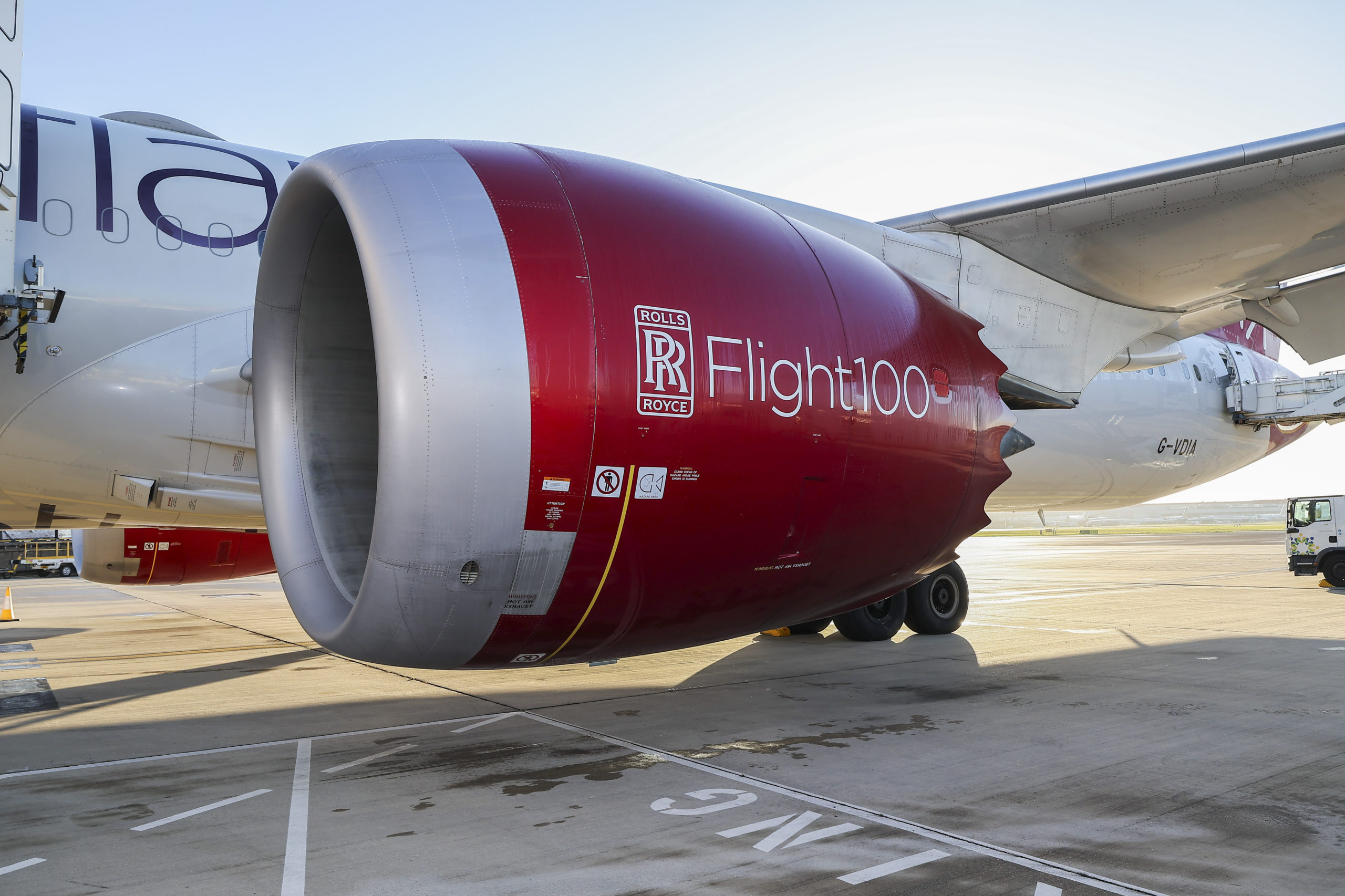Sustainable Aviation Fuel Innovation Programme
Collaboration is essential to building the UK’s SAF supply chain. Our expert team at Innovate UK Business Connect can help you find the right connections and resources to help you develop and commercialise your Sustainable Aviation Fuel project.
Helping build the UK’s SAF supply chain
The objective of the Sustainable Aviation Fuel Innovation Programme (SAF IP) is to help build and accelerate the UK SAF industry. This programme will build a network of innovators, publish analysis and reports, help you access finance and investment and empower you with expert technical knowledge through dissemination, working groups and masterclasses.
The SAF IP exists to support the ambitions of the Jet Zero Council to grow the UK SAF industry. Innovate UK Business Connect is the secretariat for the JZC SAF Delivery Group and works closely with the Department for Transport and industry to define the barriers and opportunities to developing the industry. The SAF IP will complement the work of the JZC SAFDG by delivering technical working groups to inform policy and investment decisions and act as a neutral, impartial partner to connect businesses to customers, innovators, funding and resources.
In partnership with Department for Transport and Sustainable Aviation
What the SAF Innovation Programme offers

Business engagement programme
From accessing the right experts and facilities, to finding customers and collaborative partners, our team of experts can help you develop your SAF project or process.
Contact us

Investment programme
Find out how Innovate UK Business Connect can support your search for investment in your Sustainable Aviation Fuel solution, or guide you as an investor interested in decarbonising aviation.
Learn more

Interactive Analysis
This interactive analysis offers insight into the feedstock and technology pathways being utilised, the chemical products and scale of production (TRL) to inform your supply chain development and showcase the UK’s potential in SAF.
Read more

Masterclasses
A masterclass will be a short session delivered by an expert on a specific topic and focus on the 'How to...' practical elements along the SAF supply chain, from feedstock and how to source it to getting the fuel to an aircraft.
Enquire
EVENT
Sustainable Aviation Fuel Supply Chain Initiative
Join us in London for the Sustainable Aviation Fuel Supply Chain Initiative 2024. Bringing together over 500 global players from industry, academia, government, investors and NGOs from across the supply chain.
Read more
Achievements
Since April 2022, the SAF team have enabled
4
NDAs between producers and airlines

2
Airline offtake agreements

1.6m
Tonnes of CO2 savings
Developing Sustainable Aviation Fuel
For more information and resources on developing Sustainable Aviation Fuel (SAF) please visit the International Air Transport Association (IATA) trade association’s SAF programme.
Visit site
UK SAF Clearing House
The UK SAF Clearing House is a programme funded by the Department for Transport (DfT) that provides cross-industry support for the development, testing, qualification, and production of sustainable aviation fuels.
Visit site
"Innovate UK KTN has played a key role in supporting the UK’s first commercial production of SAF for British Airways. Through this programme British Airways’ customers can now fly sustainably on SAF out of the UK and we look forward to more collaboration through the new SAF Innovation Programme to meet our 10% SAF target for 2030."
— Jonathon Counsell, Global Head of Sustainability, IAG
"Innovate UK KTN has played a key role in helping us reach our sustainable aviation fuel goals, and this new initiative will foster the partnerships required to build a thriving SAF production industry here in the UK. It will also help us achieve our central commitments of having at least five UK SAF plants under construction by 2025 and a SAF mandate of at least 10% SAF blended into the UK jet fuel mix by 2030.”
— Robert Courts, Aviation Minister (2020-2022)
“Sustainable Aviation is pleased to be partnering with Innovate UK KTN on the Sustainable Aviation Fuel Innovation Programme. Innovate UK KTN has been an important partner working with our industry members to source SAF, identify new technologies and provide us with insight on the UK chemical landscape. The launch of the SAF IP comes at a critical time where the UK government, in collaboration with industry, is driving forward the commercialisation of SAF and Innovate UK KTN is uniquely placed to accelerate the development of the supply chain.”
— Andy Jefferson, Programme Director
“Innovate UK KTN have been invaluable for Green Fuels during the development of our FIREFLY sewage-to-SAF process. Connections and introductions made have helped us navigate the industry and identify key stakeholders, not only for offtake of the final fuel, but for feedstock supply, fuel qualification and future investments. Access to the in-depth knowledge base at Innovate UK KTN has helped us gain best value from the Green Fuels Green Skies (GFGS) programme by allowing us to better understand the market drivers and dynamics, aiding the development of a robust, UK-centred, business model that is regionally deployable. With sewage being available everywhere as an inexhaustible supply, this game-changing UK innovation has the potential to impact the SAF landscape globally.”
— James Hygate, CEO & Founder, Green Fuels
Publications
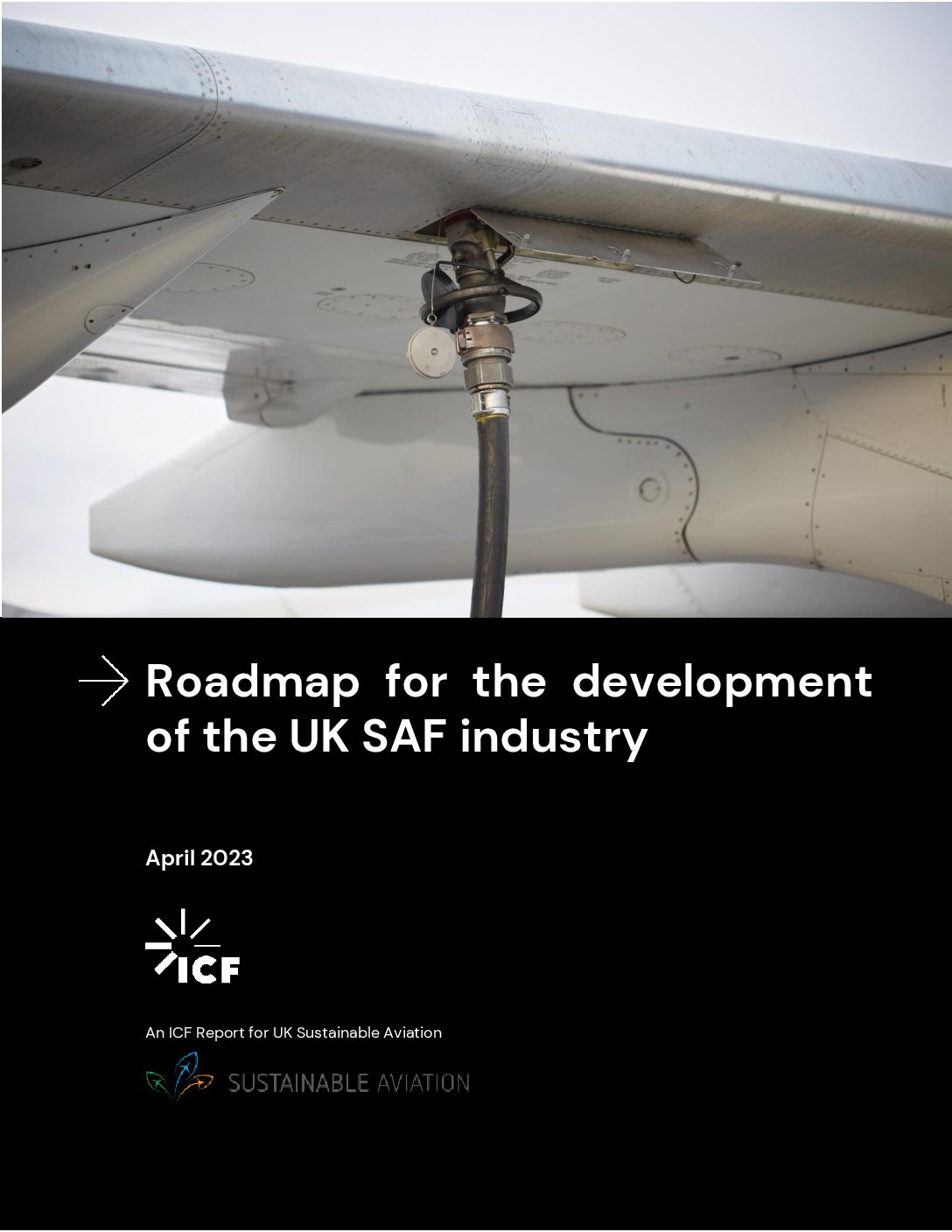
SAF Net Zero Roadmap
Sustainable Aviation's April 2023 roadmap sets out how the industry aims to achieve net zero by 2050, with the report outlining a series of initiatives to help the UK aviation industry deliver net zero carbon emissions.
Download
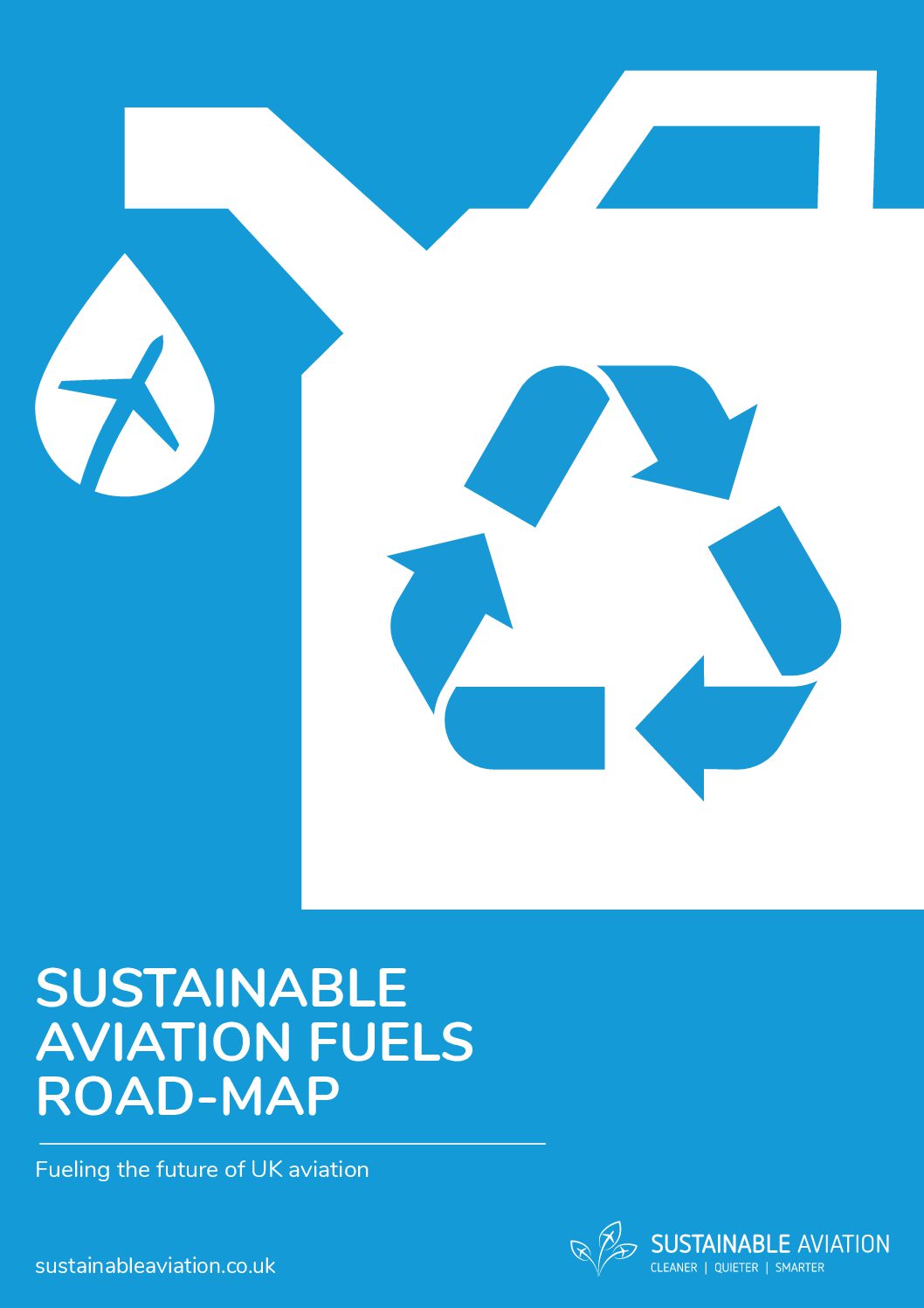
SAF Roadmap
This roadmap highlights the potential contribution that sustainable aviation fuels can make to supporting the decarbonisation of the UK economy and outlines the potential for job creation and economic growth in the sustainable fuels sector, both in the UK and globally.
Download
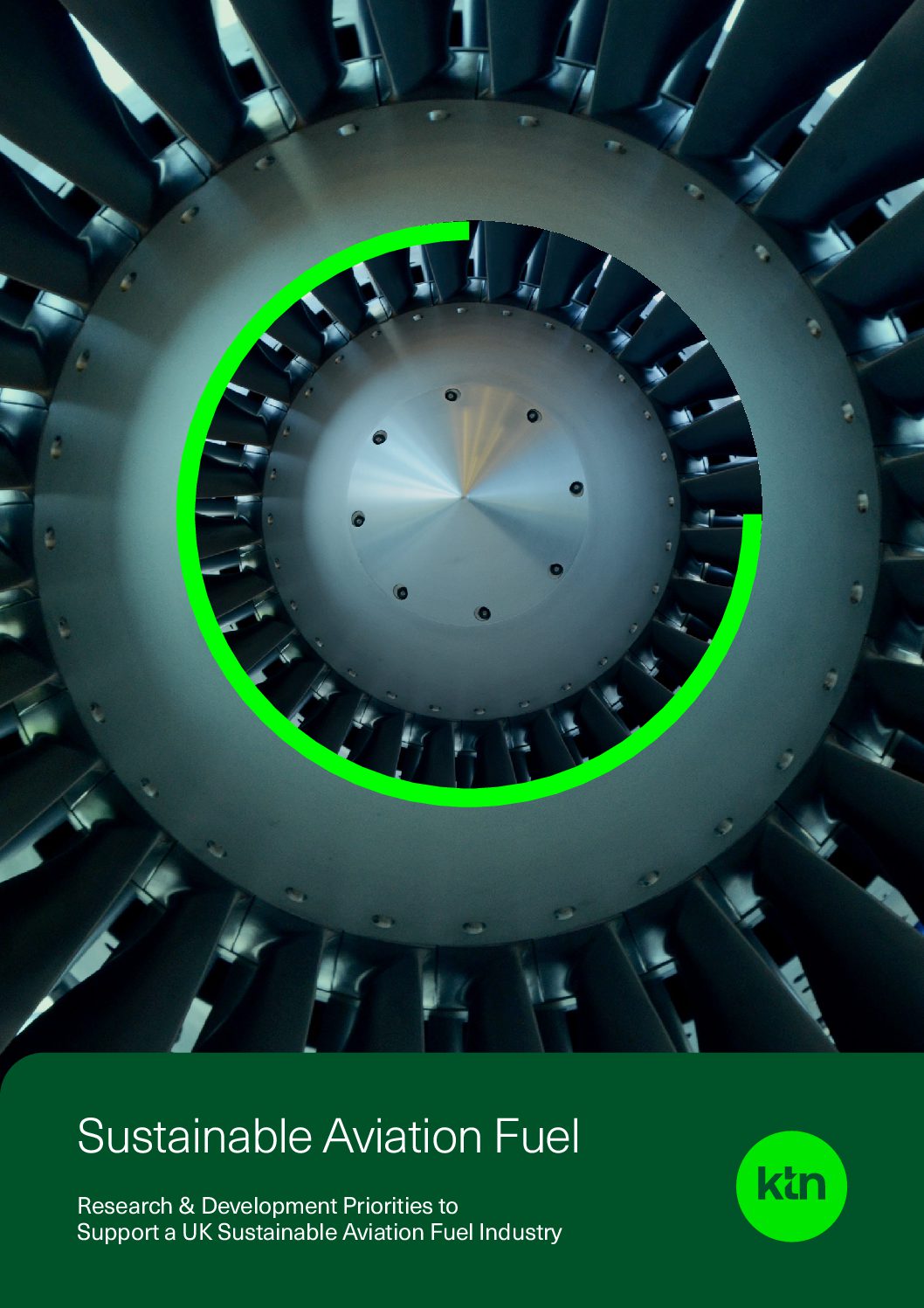
R&D Priorities
This report gives help to a range of stakeholders from across industry, academia and government to help de-risk and expedite the market entry of emerging and new fuels plus support the off-take of SAF on military platforms.
Download
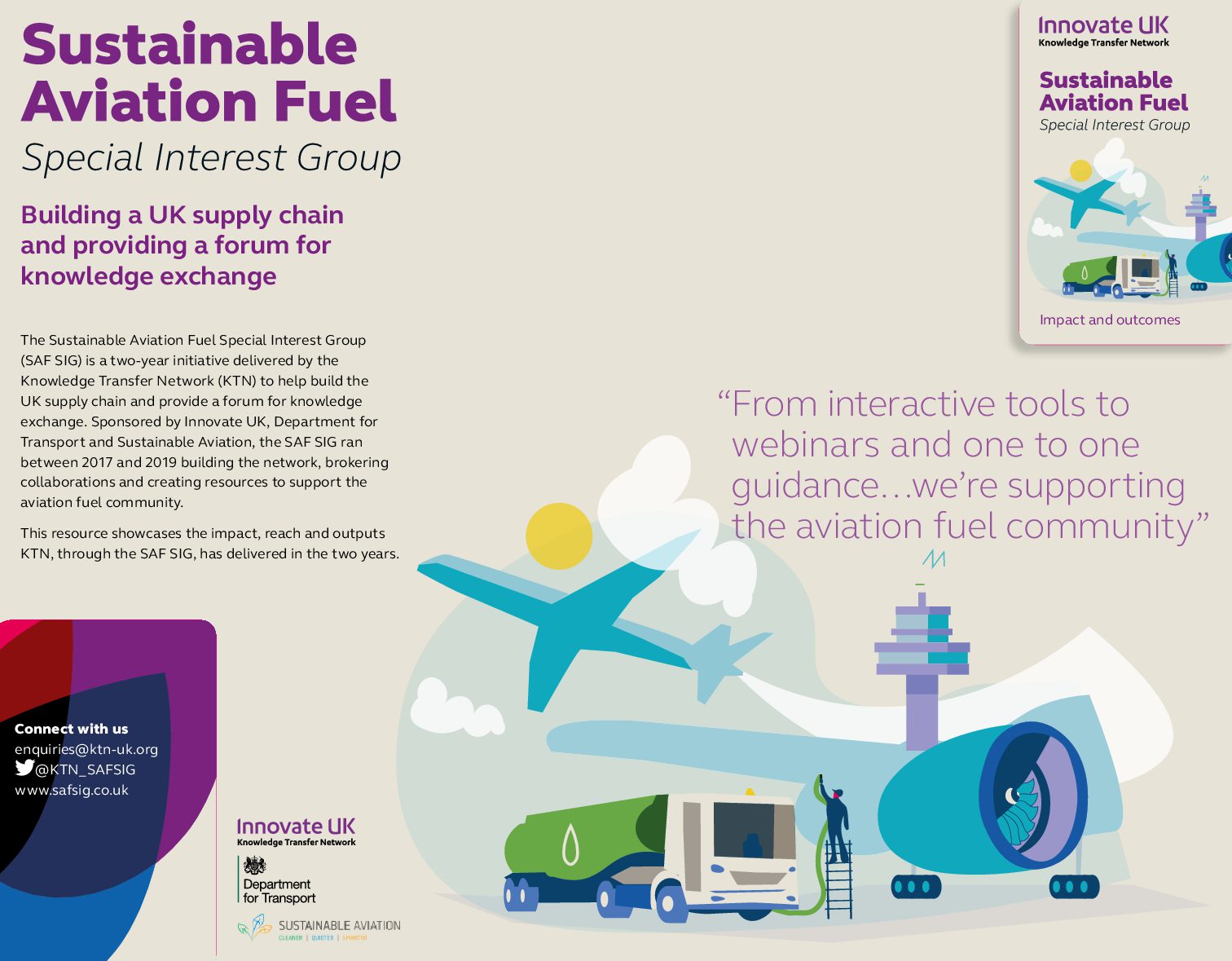
Special Interest Group
This resource showcases the impact, reach and outputs that Innovate UK Business Connect, through the SAF SIG, has delivered between 2017 and 2019 by building the network, brokering collaborations and creating resources to support the aviation fuel community.
Download
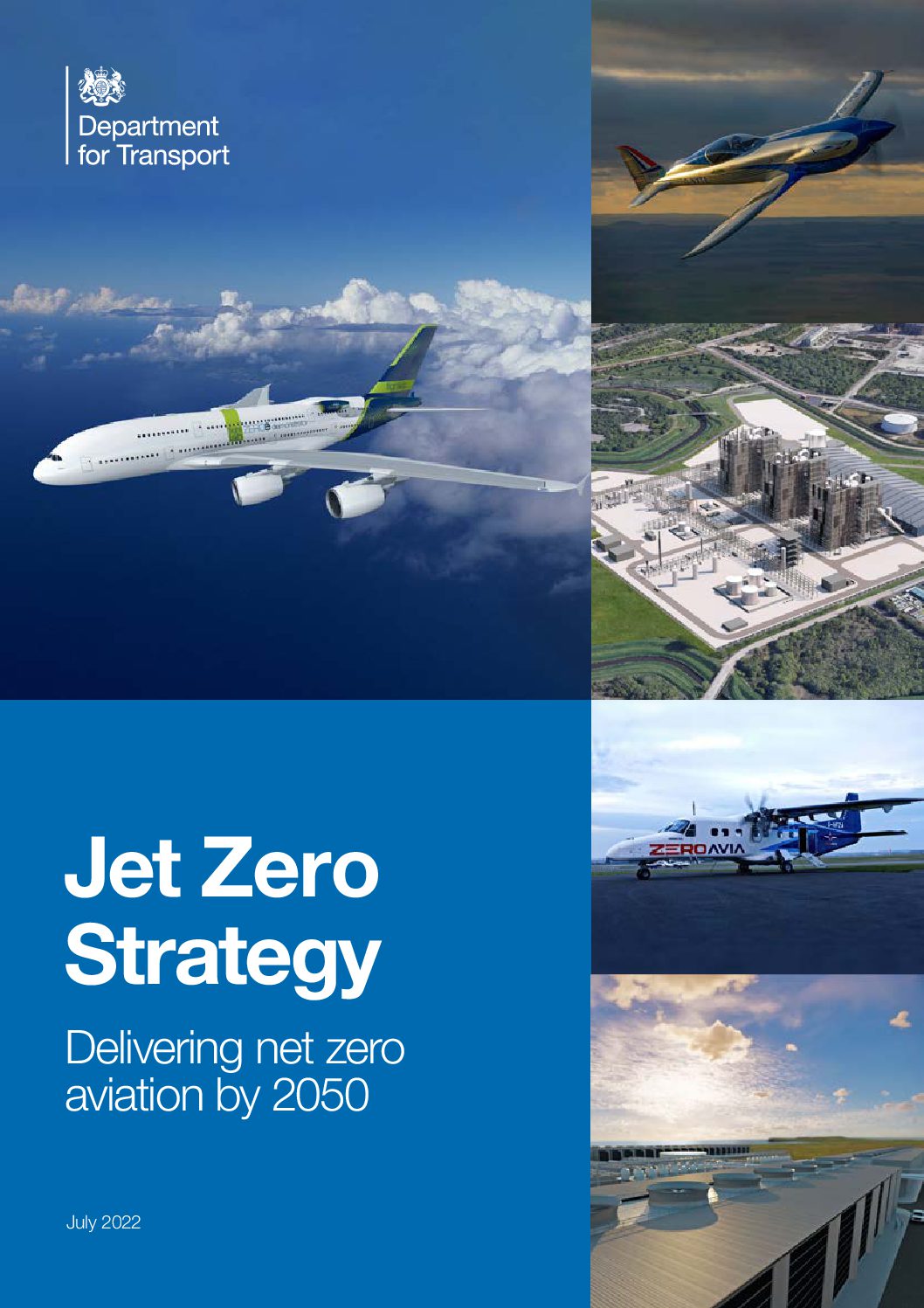
Jet Zero Strategy
The strategy sets out how we will achieve net zero aviation by 2050. It focuses on the rapid development of technologies in a way that maintains the benefits of air travel whilst maximising the opportunities that decarbonisation can bring to the UK.
Download
Our Experts
Related Events and Recordings
Related programmes
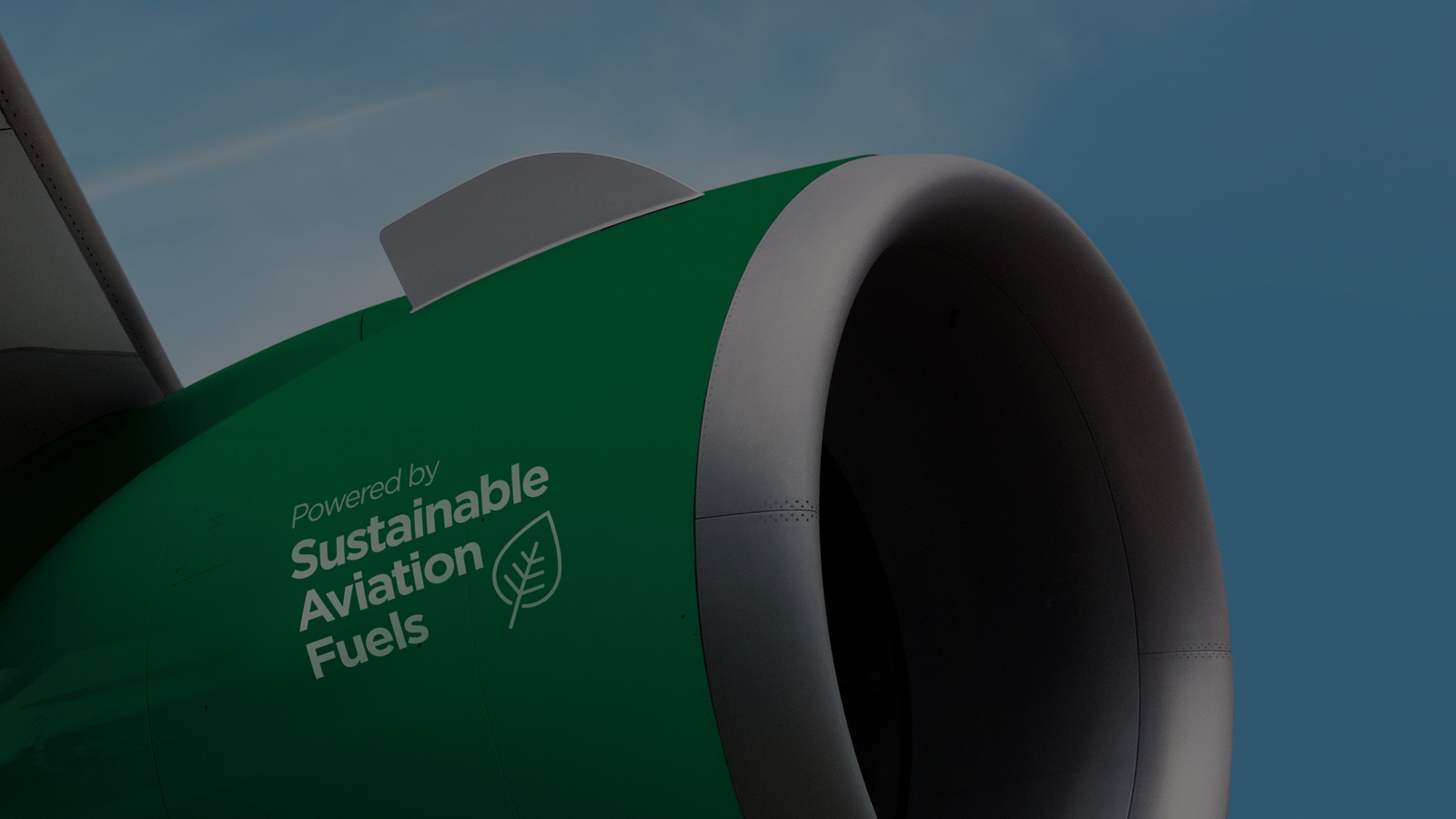
Sustainable Aviation Fuel Supplier Directory
This Sustainable Aviation Fuel (SAF) Supplier Directory has been developed by Business Connect and Jet Zero Council SAF Delivery Group (JZC SAF DG) members to provide a supply of SAF to customers interested in reducing the carbon footprint of their air travel.
Read more
Jet Zero
Innovate UK Business Connect is a member of the Jet Zero Council (JZC) – a partnership between industry and government convening ministers and senior stakeholders to deliver zero-emission transatlantic flight within a generation and 10% sustainable aviation fuel in the UK fuel mix by 2030.
Read moreEvent Alerts
To be alerted when a new technical working group or masterclass is being delivered please contact the SAF team.







